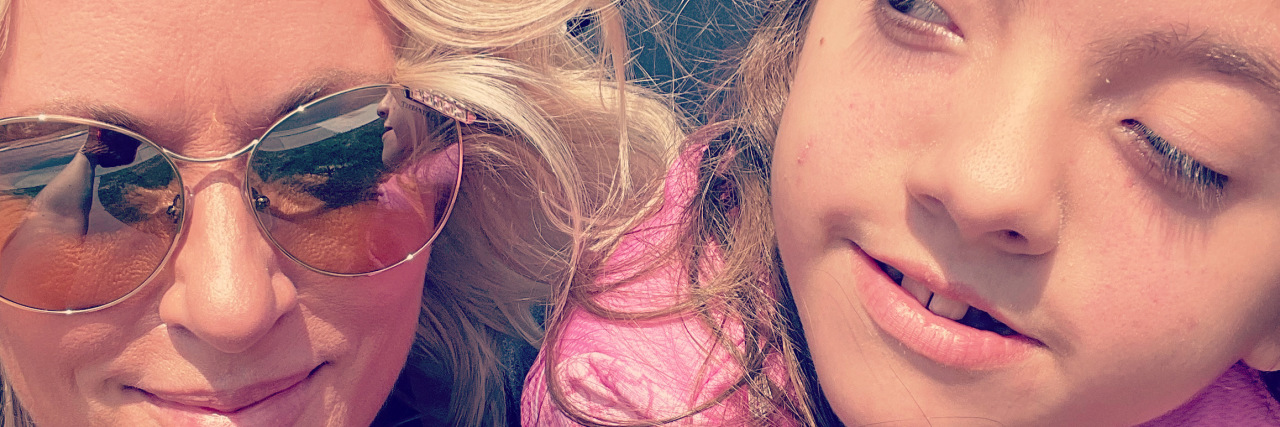I believe the pandemic gave people across the globe a glimpse into the loneliness that is faced by many people in the rare disease and disabled communities. But just a glimpse. For some of us living in the world of the rare, we were OK when the pandemic hit. We already live with major safety precautions, seclusion, and navigating a world not at all designed for people who are rare, ill, and disabled. But that little glimpse of loneliness that so many felt over the past year and a half is what so many of us have lived daily for years on end and will continue to live for many years to come.
Loneliness breeds through our lives in the disabled and rare disease communities. Many of us start off with the unknown, the mystery of what’s wrong, which immediately places you into a world of seclusion and being alone. Then you get a rare disease diagnosis or start to go through treatments that the majority of people don’t understand, or quite honestly even try to understand, and that makes our worlds even smaller. You begin to be unable to attend the parties, the activities, the social scene, because of the illness or disability or lack of help caring for your loved one with the illness, and all of the sudden, even those closest to you begin to disappear. They stop asking you to events, or parties, or just over for dinner on a Wednesday night. They stop calling because they don’t know what to say or if they will somehow be offending you, or if you’ll even be able to answer if they do call. They stop the invites because they are tired of being told “I’m sorry I/we can’t attend.” They see your social posts and comment about how strong you are and how much they love you. But under it all, you have been abandoned in a very scary world of illness, appointments, and a never-ending medical nightmare. There isn’t typically a “get better by date” with a rare disease or disability.
Recently, one of my oldest friends had a birthday party, and I wasn’t invited to attend. I am the mother of a very ill little girl, and we had just been in the hospital for a surgery a couple of days prior. As the social media pictures from this party started popping up on my feed, the hurt sunk in and the loneliness reared its nasty head. I started wondering if they didn’t want me there, or if I had done something wrong, or if they were just over inviting me to anything at all. I sent my friend a message and let her know I was hurt that I hadn’t been invited. She of course responded kindly and felt badly. Her husband had planned the party, and he said that he knew we had just been in the hospital, and didn’t know if it was appropriate to ask me to the party.
For all of you out there asking yourselves this same question, which of course comes from a place of care and concern, the answer is YES. Yes, we want to be invited! We want to feel like people still want us around, even if we can’t join. We want to feel included in something normal. In something that isn’t just about illness and disease. We want to push back on the loneliness and feel OK for just a little while, especially if we have just been in the hospital… again.
As loneliness breeds through our rare disease and disabled communities, we take it in stride. We grow to understand the reality of our situations, and we work on somehow accepting the loneliness so it doesn’t overtake us, every single day. Some days we let it suck us in and we become reclusive. Some days we are completely at peace with the loneliness.
Please ask us to come over. Please invite us to the parties and dinners. Please be patient, kind, and understanding if we can’t attend, or just aren’t up for it. We aren’t saying no because we don’t want to be included. It’s because we can’t for one reason or another. With the holidays fast approaching, think about the people around you who may be alone, include them in one of your gatherings, and if they can’t get out for medical or health reasons, drop off a meal and a hug. It goes a long way, and I promise, you will feel good for doing it.
Inclusivity isn’t just about installing ramps and elevators and leaving disability parking spaces open. Inclusivity is so often about creating community and showing love and support for those of us who are trying desperately to stop the loneliness from breeding.
Be kind, be thoughtful, think about what would make you feel included, and help the people you love and care about who are living this.
Get up, dress up, show up, keep moving forward.

